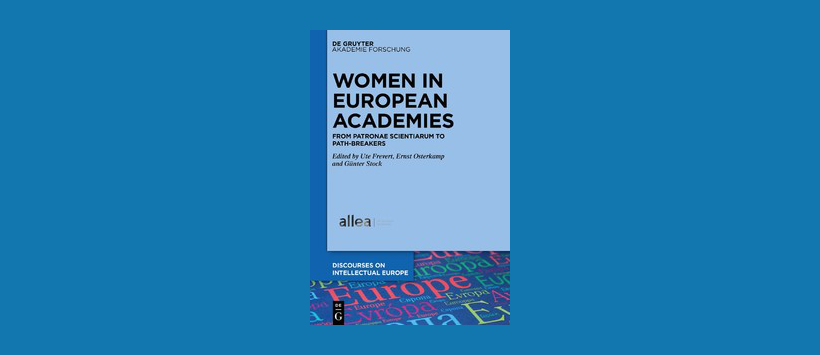Women in Science - the new ALLEA publication
The European Federation of Academies of Sciences (ALLEA) has prepared a publication devoted to outstanding women and the role they have played in the history of European academies of sciences. The book “Women in European Academies – From Patronae Scientiarum to Path-Breakers” will be published by the German publishing house De Gruyter. Among the profiles of women, whose accomplishments have changed the face of science, there was also a Polish physicist and chemist.

The book consists of 13 portraits of extraordinary women written both in the native language of the authors and translated to English. In addition to famous historical figures, such as the Queen of Prussia Sophia Charlotte of Hanover, the Empress Maria Theresa, Queen of Sweden Lovisa Ulrika, and Russia’s Empress Catherine the Great, there are also Catalan writer Caterina Albert, economist Beatrice Webb, and researchers: Ersilia Caetani Lovatelli, Johanna Westerdijk, Eleanor Knott, Ella Kivikoski, Dorothy Hodgkin, Lise Meitner, and Maria Skłodowska Curie. The biography of the Polish Nobel Prize winner was written by Dr. Hanna Krajewska, historian and director of the Archives of the Polish Academy of Sciences in Warsaw.
The book “Women in European Academies – From Patronae Scientiarum to Path-Breakers” is the third volume in the ALLEA series Discourses on Intellectual Europe. So far, “The Boundaries of Europe” and “The Role of Music in European Integration” have been published. Both publications are available in Open Access mode. All volumes in this series are compiled and edited by eminent scholars form ALLEA Member Academies.
About ALLEA
The European Federation of Academies of Sciences unites over 50 academies from 40 European Union countries, as well as from several countries outside the EU. Founded in 1994, ALLEA aims to strengthen the role of science in society by promoting science as a common good and supporting scientific collaboration across national borders.
Read an excerpt from the “Women in European Academies – From Patronae Scientiarum to Path-Breakers” publication on the publisher’s website: https://www.degruyter.com/view/title/547338.
Source of information: ALLEA
